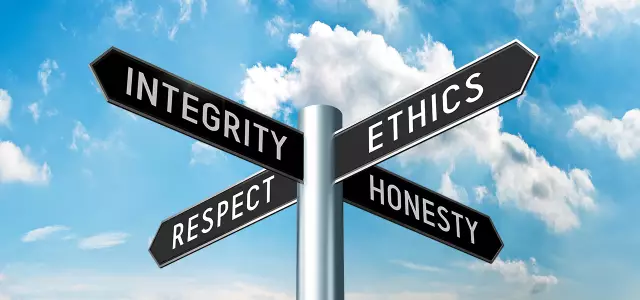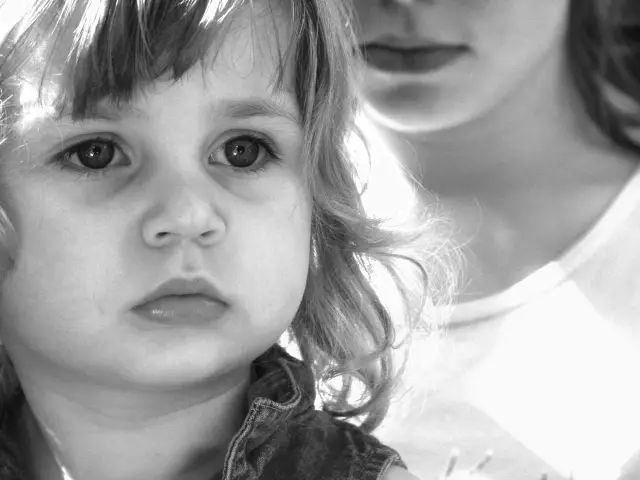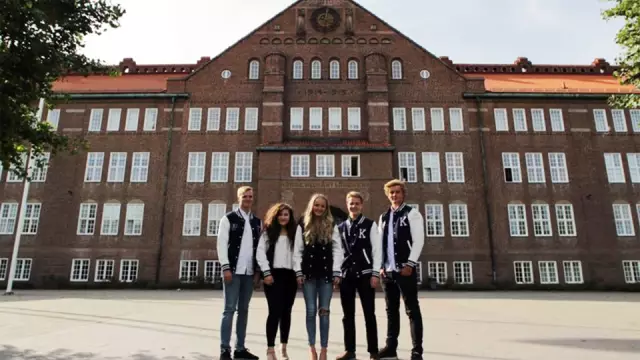- Author Rachel Wainwright wainwright@abchealthonline.com.
- Public 2023-12-15 07:39.
- Last modified 2025-11-02 20:14.
Moral and ethical education

Modern society is faced with an acute problem of moral education of children, the methods used earlier are becoming less effective, and it is more and more difficult for the younger generation to instill moral and spiritual values. Today, children receive a huge amount of information from the media, the Internet, schools, cinema and kindergartens, which, unfortunately, rather contribute to the erosion of understanding of moral norms. It is this state of affairs that makes society increasingly think about the problem of moral and ethical education of children of all ages.
Features of moral and ethical education of preschoolers
At the age of 4-6 years, moral and ethical education is especially important for a child, since it is during this period that children are especially susceptible to the assimilation of moral requirements and norms, which are the most important side of the process of forming the child's personality and character. It is these norms that in the future will become the yardstick of the child's actions and the basis, thanks to which he will be able to correctly understand and evaluate the emotions and feelings of the people around him.
Understanding the essence of concepts such as justice, love, friendship, compassion and kindness is not only a significant level of emotional development, but also helps the child to experience stressful situations more calmly and not succumb to negative influences from the outside. As a result of such moral and ethical education of preschoolers, children begin to behave correctly not for the approval of adults, but consider compliance with the norms of behavior as an important component of relations between people.
Emotions play the most important role in a child's life, since they help to react and form a preschooler's attitude to the surrounding reality. Moral education is determined by the fact that by assimilating the language of feelings and emotions, the spectrum of which expands and becomes more diverse with age, the child masters the ability to express his experiences using various non-verbal and verbal means, in accordance with the norms accepted in society. The difference between a two-year-old and a five-year-old child is that an older toddler already knows how to hide his fear and not give in to emotions, to hold back tears and the resulting aggression. Thanks to moral and ethical education, children are more consciously using their feelings and emotions.
The formation of the emotional environment of preschool children is very closely related to their moral and ethical education and has its own dynamics. Based on life examples, they develop their own attitude towards both negative qualities (greed, backbiting, deceit) and good human qualities (the ability to love, support, patronize, etc.). As he grows up, this attitude to the fundamental concepts of life continues to develop, and with the help of the behavior of the adults around the child, moral norms of his behavior are laid. The environment in which a preschooler grows up determines the direction of his moral development throughout his life. What demeanor is accepted and welcomed in the family, as a rule, is perceived by the child as a generally accepted norm.
Moral and ethical education of schoolchildren
At the beginning of his life, the parents are engaged in the moral upbringing of the child, then, depending on whether a decision is made to send the child to kindergarten, kindergarten teachers are engaged in it on an equal basis with the parents, after which the baton is passed on to teachers in schools. At the age of 6-7 years, the child has already formed a clear idea of what is good and right, and what is not, in his behavior there are skills of elementary politeness.

The child's social circle at school becomes wider, studies are added to his duties, he has to build relationships with people new to him. In the first 3-4 years of school life, the child is especially susceptible to moral and aesthetic education, he perfectly learns the norms and rules of behavior in society. Thanks to the separation of moral norms into a separate system, the child forms his own moral position, which he will follow under any circumstances.
When implementing the moral and ethical education of schoolchildren, it is necessary to take into account the fact that over time their moral ideas will change, and the outcome of any act will no longer be unambiguous - good or bad. As a child grows older, he will discover that sometimes good deeds carried out with good intentions lead to negative consequences, but due to lack of objectivity, children judge actions only by their consequences. However, giving a moral assessment of an act, even if it led to negative consequences, psychologically children are already able to take into account the intentions with which a person performed such an act. This is due to the fact that, along with the awareness of his "I", the child develops an understanding of the "I" of the people around him. It is during this period that it is especially important, through the moral and ethical education of preschoolers, to form in children an understanding of the interests, needs and experiences of other people.
Found a mistake in the text? Select it and press Ctrl + Enter.






